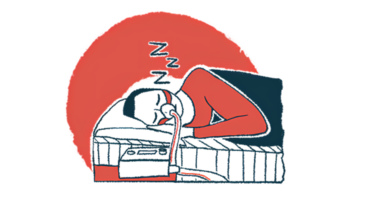Motor Disability in Prader-Willi Patients Reduces Caregivers’ Quality of Life, Study Reports

Motor disability is a common problem in patients with Prader-Willi syndrome (PWS) and may negatively impact their caregivers’ quality of life, particularly physical and emotional problems, researchers from Taiwan reported.
Their study, “Motor performance in Prader-Willi syndrome patients and its potential influence on caregiver’s quality of life,” was published in the journal PeerJ.
One of the most serious consequences of Prader-Willi is obesity, which is caused by excessive eating because patients are unable to feel full, a slower metabolism, and a low energy utilization.
As a result, these patients often experience an increase in body fat mass and a reduction in muscle mass. This reduces muscle strength and predisposes patients to significantly less physical activity, resulting in motor limitations and disability.
Together with the developmental and behavioral issues associated with Prader-Willi, the reduced physical capacity could be an additional burden and source of emotional stress for caregivers of patients with the disease.
Many studies have shown that caregivers are at an increased risk of experiencing emotional distress, depression, and anxiety when a child or young adult has health concerns.
In particular, families of children with PWS experience higher levels of parental stress and pessimism compared with families of children with other intellectual disabilities.
However, few studies have focused on the disabilities of adults with Prader-Willi syndrome and the impact it has on their caregivers’ quality of life.
A team of researchers from Taiwan conducted a study to assess the motor performance of PWS adult patients and its impact on the quality of life of their family caregivers.
The team analyzed seven adults (two females and five males), ages 18 to 31, with genetically diagnosed Prader-Willi syndrome, and their main caregivers.
Several motor assessments were used to evaluate the patients’ motor performance: two upper limb muscle strength tests — hand grip and lateral pinch — and two lower body muscle strength, walking speed, and endurance function tests — the timed up-and-go test and the 30-second sit-to-stand test. One balance test, the Berg Balance Scale, was also performed.
Global quality of life, health-related quality of life, and the parental stress of caregivers were assessed using specific questionnaires.
All Prader-Willi adults analyzed showed lower motor function compared to data from healthy adults. PWS patients had lower hand grip and lateral pinch strengths, a lower number of sit-to-stand cycles, and a longer time on average when performing the timed up-and-go test.
Regarding caregivers, the motor disability of patients seemed to negatively impact their quality of life, particularly the caregivers’ social functioning and social relationships.
There was a significant negative correlation between the patients’ hand grip strength and the caregivers’ bodily pain.
The balance of PWS patients in the group analyzed was also negatively linked to their caregivers’ health-related limitations, interfering with work or other daily activities, due to physical, emotional, and social functioning issues.
Patients’ performance at the timed-up-and-go test was significantly correlated with the patients’ and their family members’ social relationships, meaning that the better the mobility of the patient, the greater their family members’ participation in social relationships.
“The results of our study indicate that the motor performance of adults with PWS might have negative effects on their family members in terms of social participation and physical and emotional role limitations,” researchers wrote.
“Future research should explore the relationship between physical performance, psychological difficulties of PWS, and caregivers’ [quality of life],” they concluded.






